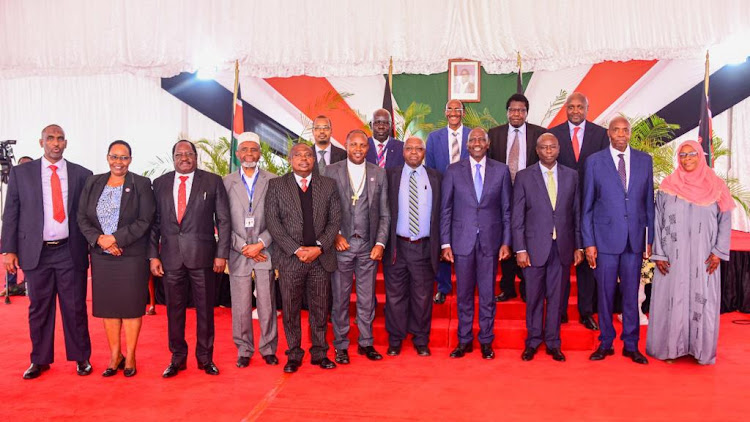The Presidential Working Party on Education Reforms (PWPER) has made a groundbreaking recommendation for a radical change to the grading formula used by the Kenya National Examinations Council (KNEC) in assessing learners' performance in the Kenya Certificate of Secondary Education (KCSE) examinations.
In a report submitted to President William Ruto on Tuesday, the panel proposed that KNEC should abandon the current grading system for KCSE and adopt a new computation method for the mean score. Under the proposed formula, the KCSE mean score would be based on Mathematics, English or Kiswahili, and the five best-performing subjects for each student.
Presently, KNEC's grading system for KCSE takes into account seven subjects, including English and Kiswahili, Mathematics, two Science subjects, and two other subjects. According to the PWPER, this computation method disadvantages some learners whose best-performing subject is not included if it falls outside the designated cluster.
The panel highlighted that both English and Kiswahili assess the literacy level of learners, while Mathematics and any Science subject evaluate their numeracy aspects. Therefore, by focusing on these core subjects and the five best-performing subjects, the proposed grading formula aims to provide a more balanced and comprehensive evaluation of students' academic abilities.
The sweeping proposal could have significant implications for students' career choices and opportunities. Under the new system, students who might not perform well in English can still qualify for prestigious courses like Medicine, Law, and Engineering, as the requirements for these courses will no longer solely rely on English grades. Similarly, students excelling in Kiswahili could pursue education courses at the university level, even if they have not performed well in English.
The move is seen as a step towards reducing the intense competition for limited slots in higher education institutions and addressing the high dropout rates of learners who fail to achieve the required grades for their desired courses. By providing a more inclusive and holistic assessment, the PWPER hopes to ensure that more learners have access to quality education and better opportunities for future success.
The recommendations made by the Presidential Working Party on Education Reforms signal a potential transformation in the educational landscape, emphasizing a learner-centered approach and a more flexible grading system that caters to the diverse talents and strengths of students. As the proposal gains attention and consideration, education stakeholders will closely examine its potential impact on the education sector and its ability to create a more equitable and inclusive educational environment.

